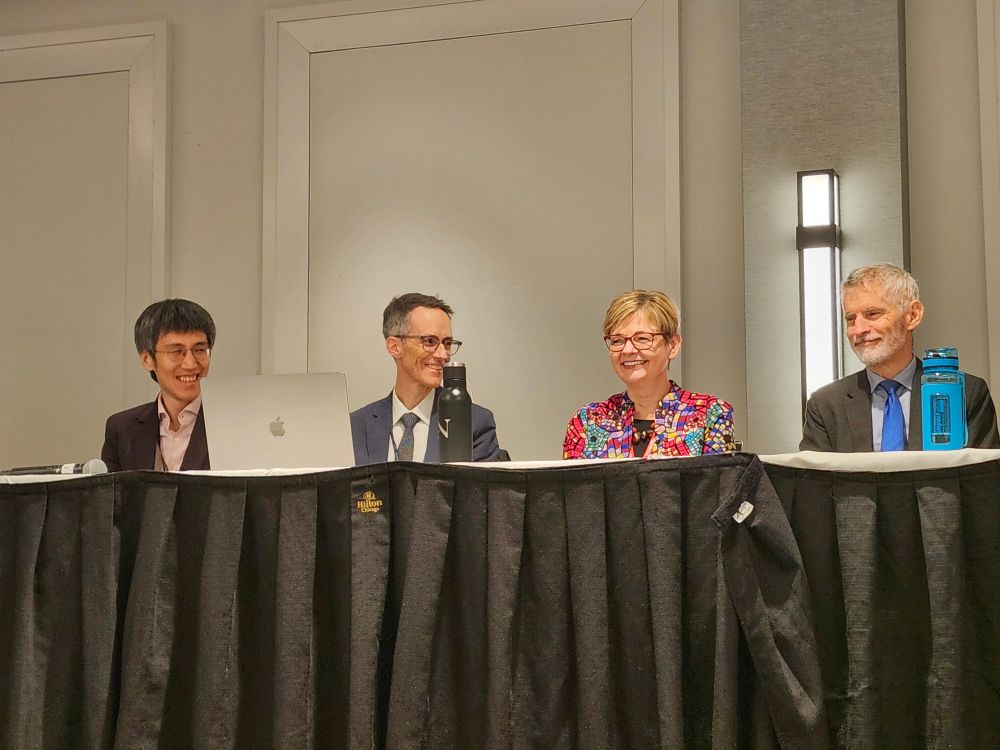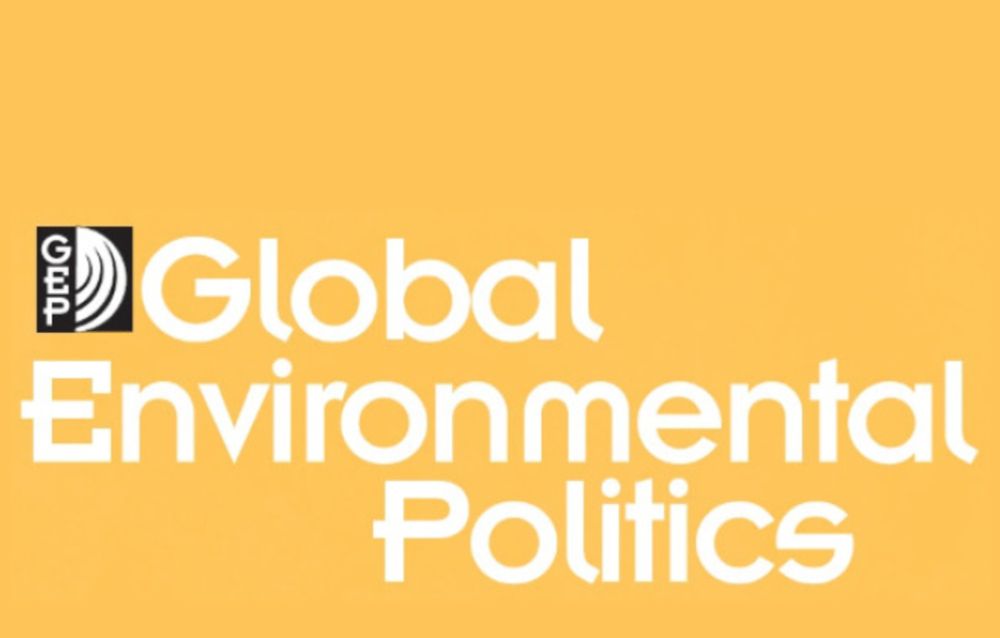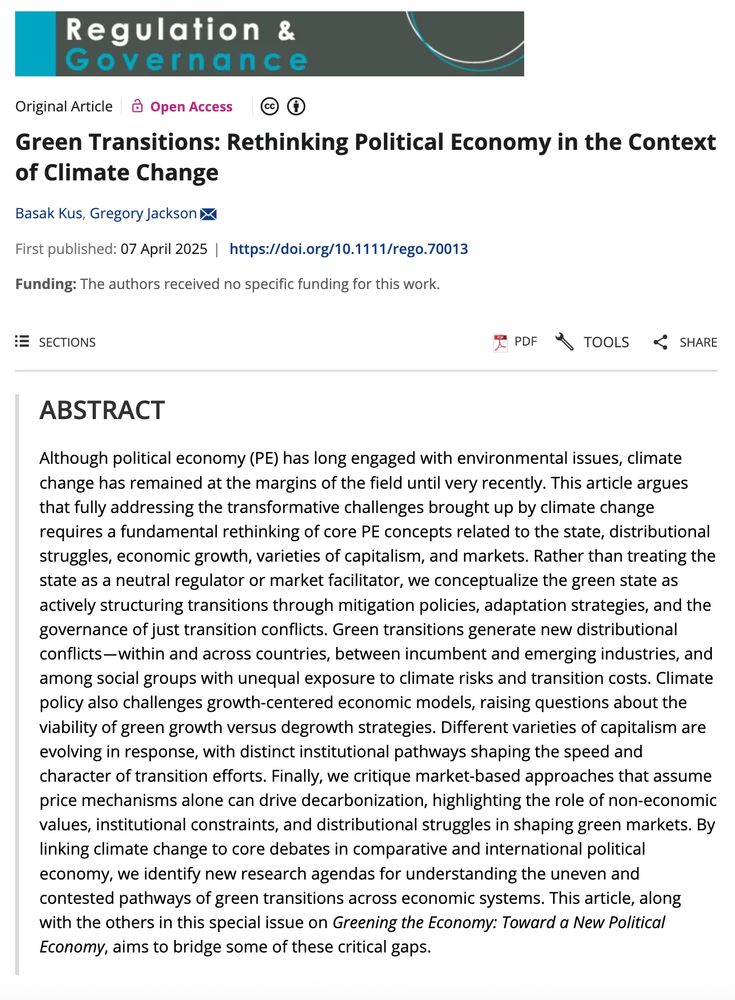Reposted by Graeme Auld
'The Green Economy and the Global South' by @hochstet.bsky.social #greeneconomy #globalsouth #RegGov See abstract 👇
onlinelibrary.wiley.com/doi/full/10....

Reposted by Graeme Auld
carleton.ca/polisci/?p=3...
#humanrights #data #wethedata #governance

Reposted by Graeme Auld

Reposted by Graeme Auld

Reposted by Graeme Auld
direct.mit.edu/glep/issue/2...

Reposted by Graeme Auld
'Green Transitions: Rethinking Political Economy in the Context of Climate Change'
by @basakkus.bsky.social & Gregory Jackson
See special issue introduction 👇
onlinelibrary.wiley.com/doi/full/10....

Reposted by Graeme Auld

Reposted by Graeme Auld
'The Drivers of Science Referenced in US EPA Regulatory Impact Analyses: Open Access, Professional Popularity, and Agency Involvement'
By: Tyler A. Scott, Sojeong Kim, Liza Wood
See abstract below 👇
#RegulatoryScience #RegGov
onlinelibrary.wiley.com/doi/10.1111/...

by Graeme Auld
www.tandfonline.com/doi/full/10....

by Graeme Auld
by Graeme Auld
Reposted by Graeme Auld, Matthew S. Erie
'Legal Brokers of Chinese Investment in Cambodia: Compliance Between Contract and Culture'
by: @matthewserie.bsky.social, Molly Bodurtha, Sokphea Young
See abstract below 👇
#RegGov #Compliance #investment
onlinelibrary.wiley.com/doi/10.1111/...

by Graeme Auld
www.newyorker.com/magazine/202...

by Graeme Auld
www.nytimes.com/2025/05/13/c...

by Graeme Auld
www.theglobeandmail.com/business/art...

by Graeme Auld
carleton.ca/deputyprovos...

by Graeme Auld
'Licensing to operate: Understanding variations in regulatory outcomes in the Australian mining sector'
Wrote this one with Lisa Mills & Jennifer Stewart. Thanks to #SSHRC for funding support.
See abstract 👇
www.sciencedirect.com/science/arti...

by Graeme Auld
thenarwhal.ca/ontario-enda...

by Graeme Auld
carleton.ca/sppa/mppa-ca...

by Graeme Auld
by Graeme Auld
public-inspection.federalregister.gov/2025-06746.pdf
by Graeme Auld
www.nytimes.com/2025/04/16/c...

by Graeme Auld
Reposted by Graeme Auld
See the table of contents 👇
Issue includes a special issue on 'Greening the Economy: Toward a New Political Economy'
Other articles on #lobbying #implementation #intermediaries #procurement
onlinelibrary.wiley.com/toc/17485991...

by Graeme Auld
www.nytimes.com/2025/04/07/n...





